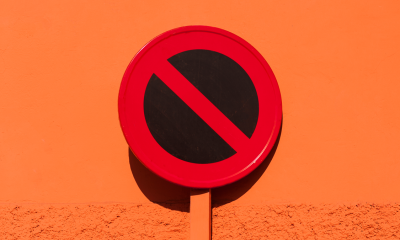Finance
Head of NYC subway system resigns: reports


Joseph Lhota has reportedly
resigned.
Getty/Spencer
Platt
-
Joseph Lhota, the chairman of New York’s Metropolitan
Transportation Authority (MTA), has
resigned following Gov. Andrew Cuomo’s election to a third
term, multiple publications have reported. -
The MTA is responsible for New York’s public transit
system, including the subway, which has become
increasingly unreliable. -
The MTA did not immediately respond to Business
Insider’s request for comment.
Joseph Lhota, the chairman of New York’s Metropolitan
Transportation Authority (MTA), has resigned following Gov.
Andrew Cuomo’s election to a third term, multiple publications
have reported. Lhota said in October that he did not plan to
leave the agency, according to
The New York Times.
The Wall Street Journal reports that Fernando Ferrer, the
MTA’s vice chairman, will replace Lhota on an interim basis as
the agency searches for a new chairman.
The MTA did not immediately respond to Business Insider’s request
for comment.
Lhota was appointed to the chairman position in June for the
second time, after a stint in 2012. During his most recent term,
which was set to end in 2021, he had faced questions about
potential conflicts of interest arising from other positions he
maintained while serving as the MTA’s chairman.
The MTA is responsible for New York’s public transit system,
including the subway, which has become
increasingly unreliable due to decades of inadequate
investment, an outdated signaling system, track fires, and
overcrowding.
In 2017, the MTA began working on an $800 million rescue plan
that included urgent track and signal repairs. And in May,
New York City Transit Authority president Andy Byford
unveiled a plan to
repair and modernize the New York City subway system.
The plan,
called “Fast Forward,” would replace an antiquated signal system,
redesign the way passengers pay fares, increase the number of
subway cars, and install elevators at stations. It would also
include station repairs, an increased number of buses, and
redesigned bus routes.
Byford said the plan would cost about $40 billion, according to
Gothamist.
Transit projects in New York are far
more expensive than those in comparable
cities throughout the world partly because of generous
compensation for workers and high costs from contractors, both of
whom are allowed to negotiate their rates without input from any
New York City agencies.
The Times
has
previously estimated that upgrading the signaling system for
every subway line could take 50 years and cost $20
billion.
-

 Business6 days ago
Business6 days agoConsumer Financial Protection Bureau fines BloomTech for false claims
-

 Business5 days ago
Business5 days agoLangdock raises $3M with General Catalyst to help businesses avoid vendor lock-in with LLMs
-

 Entertainment4 days ago
Entertainment4 days agoWhat Robert Durst did: Everything to know ahead of ‘The Jinx: Part 2’
-

 Business7 days ago
Business7 days agoKlarna credit card launches in the US as Swedish fintech grows its market presence
-

 Entertainment4 days ago
Entertainment4 days agoThis nova is on the verge of exploding. You could see it any day now.
-

 Business4 days ago
Business4 days agoIndia’s election overshadowed by the rise of online misinformation
-

 Business4 days ago
Business4 days agoCesiumAstro claims former exec spilled trade secrets to upstart competitor AnySignal
-

 Entertainment7 days ago
Entertainment7 days agoHow to set boundaries in the early stages of dating






















